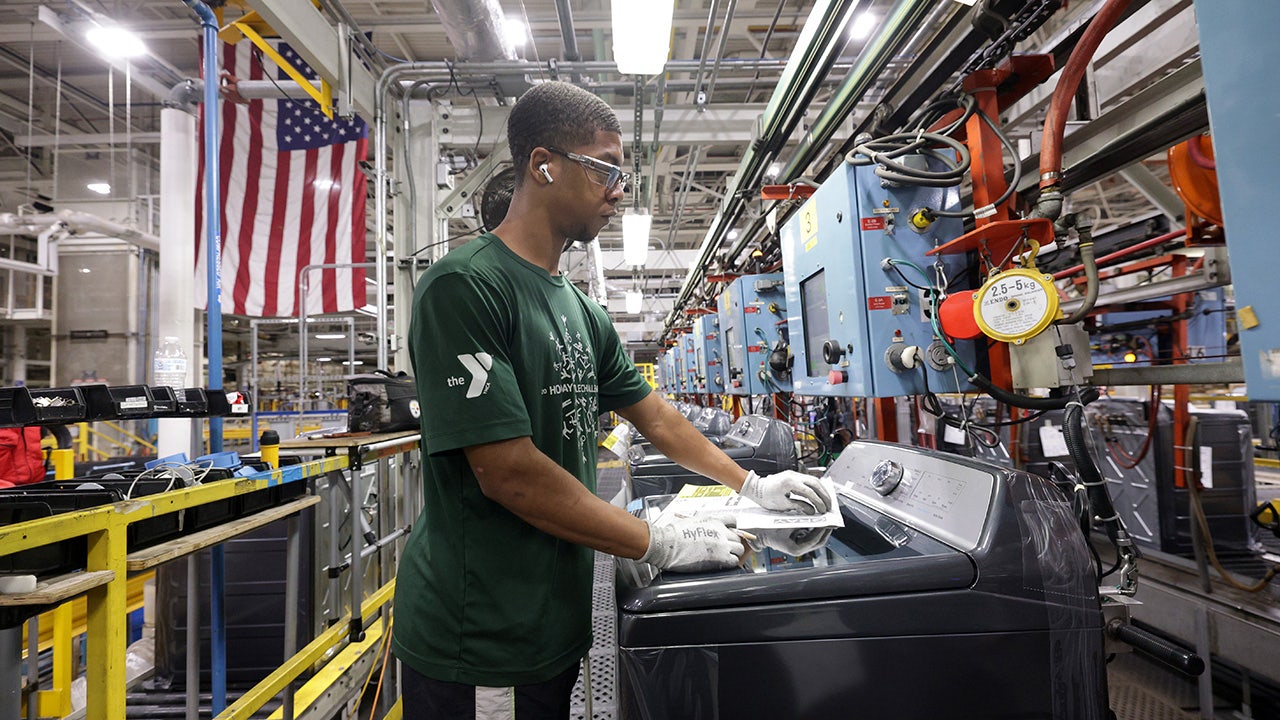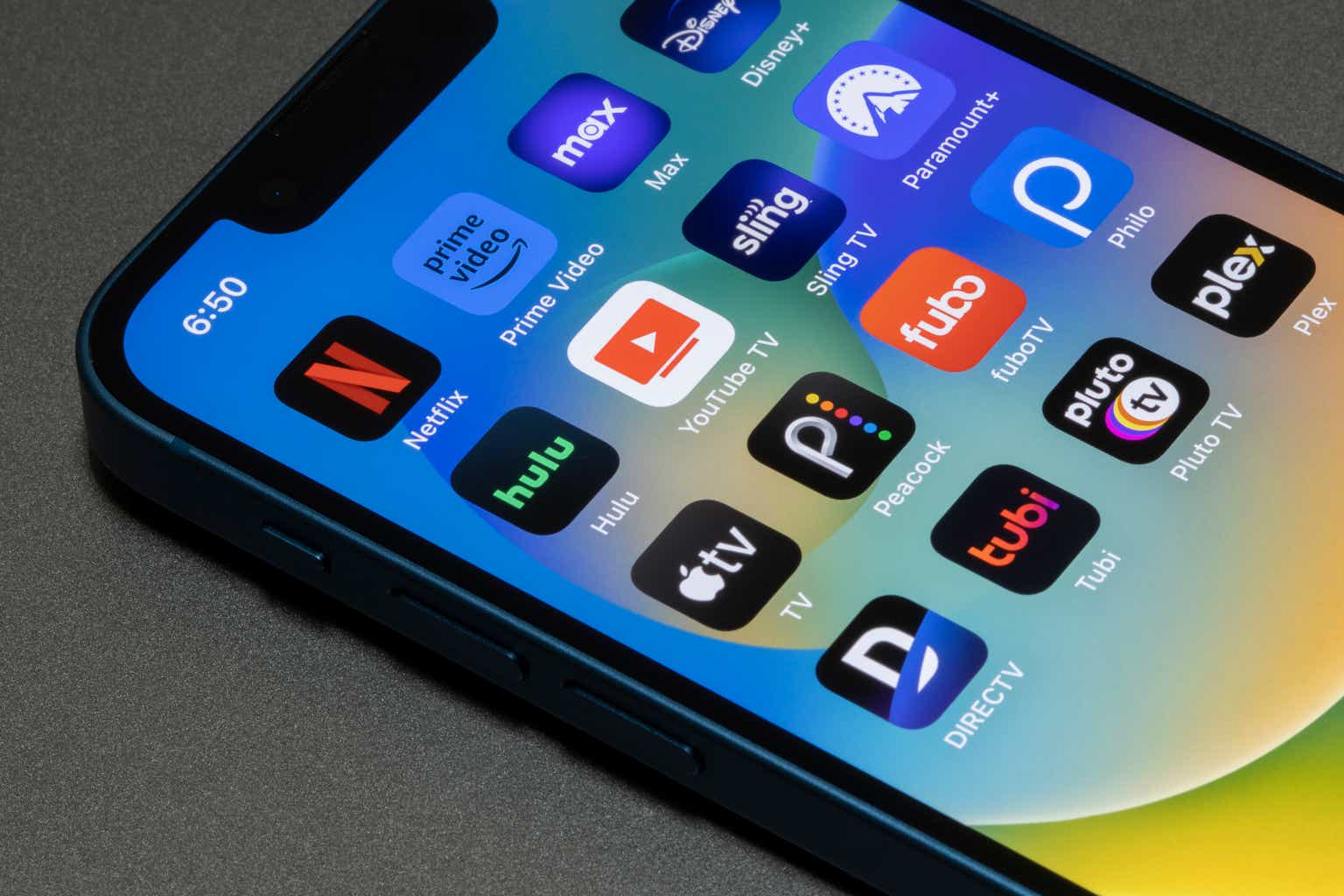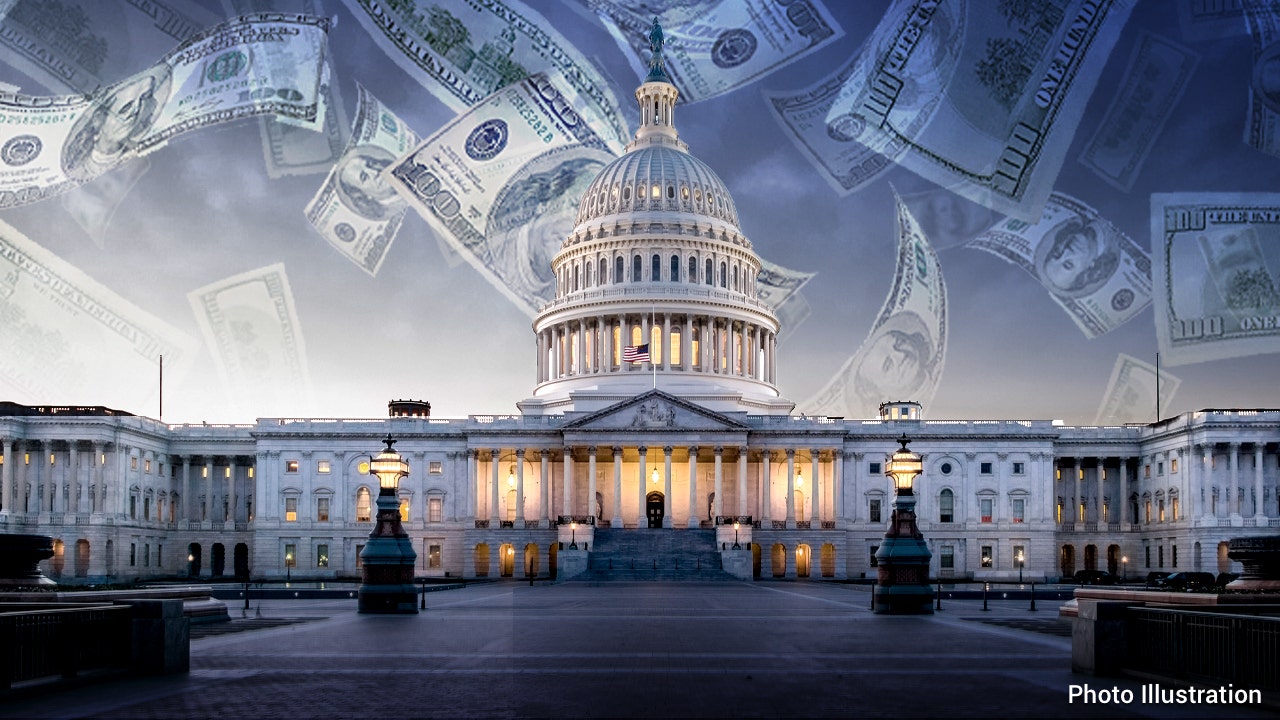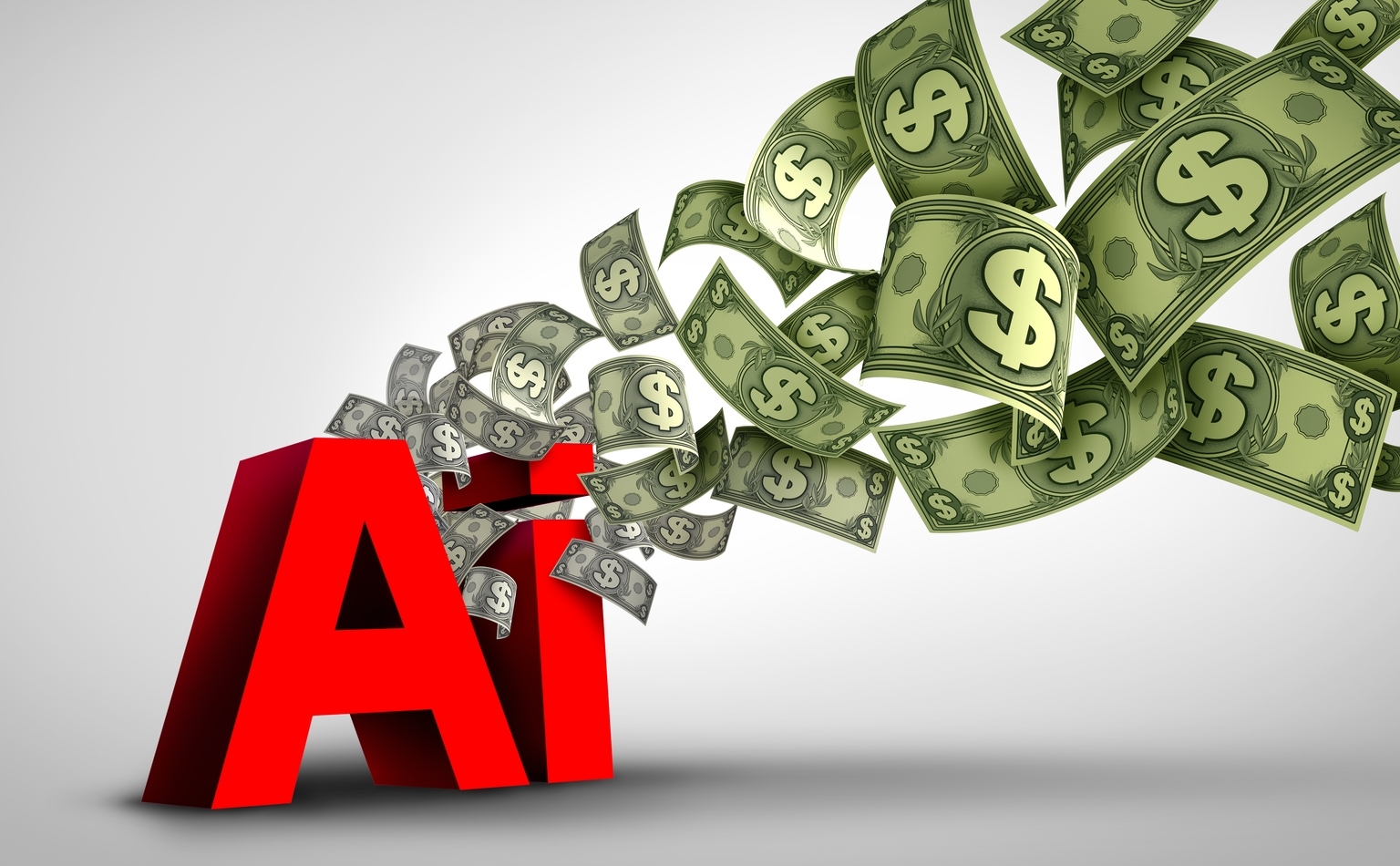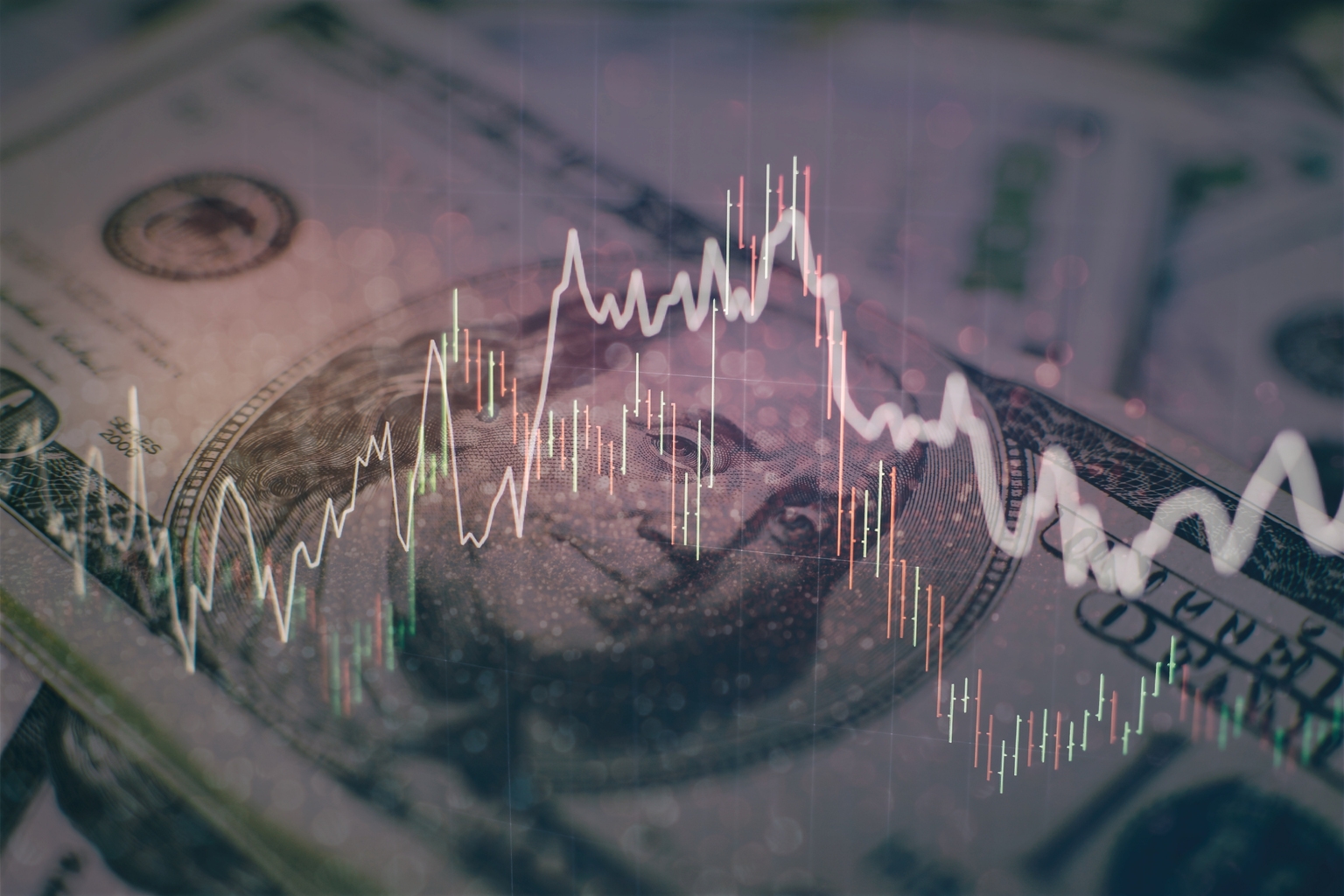Listen here or on the go via Apple Podcasts and Spotify
David Gardner, co-founder of The Motley Fool, author of Rule Breaker Investing, shares why it’s possible to beat the market (0:30). Investing is not just a math exercise (5:00). Starbucks stock and playing the long game (8:20). Investing principles that have led to wins (12:40). Management is key (19:00). Overvalued as a buy signal (26:20). Parallels to dotcom era (33:45).
Transcript
Rena Sherbill: Very happy to welcome to the show David Gardner, co-founder of The Motley Fool, author of the fantastic new book, Rule Breaker Investing. David, so happy to have you on Seeking Alpha. So happy to have you on Investing Experts. Thanks for coming on.
David Gardner: Well, thank you very much for the invitation, Rena. I’m really looking forward to the conversation.
RS: Likewise. You know, The Motley Fool and Seeking Alpha both really at the forefront of helping retail investors, of helping investors secure the best alpha, secure the best profit.
Also, we are in the midst, as everyone seems to be aware of, of many, many paradigm shifts happening in the world at large, in the economy, in the stock market.
You just wrote a book, Rule Breaker Investing. What would you say right now as investors try and understand this perhaps new iteration of the markets, what is best to keep in mind these days, would you say?
DG: Well, I think first of all, I’ve always loved your name Seeking Alpha. I also like Rena. That’s actually my daughter-in-law’s name. But I was gonna call out Seeking Alpha because I think that’s what we should be doing as investors.
I really believe that it is not just not luck to beat the market. I believe it’s very possible to beat the market, and I believe that I have done that over thirty years now.
And so the purpose of Rule Breaker Investing is to basically leave it all out there on the field. This is my last stock market book, and I try to put into it everything that I use to beat the market.
To answer your question, I think the first thing upfront is the time frame that we’re gonna take to our investing. I feel very strongly that you should have a whole life time frame, not a not a three year time frame, not a ten year time frame.
I think you should be invested your whole life and just keep buying and dollar cost averaging into the best individual stocks you can find.
Of course, for years of The Motley Fool, we’ve said index funds are great, and they are for a lot of Americans who just don’t wanna spend time listening to us on a podcast.
Index funds are a wonderful answer. But I suspect because of the audience we have listening to us today, they’re interested in beating the market. And for me, the best way to do that is to find excellence, buy excellence, and add to excellence over time and sell mediocrity, and time is the key player.
So those are a few I realized, yeah, there are some paradigm resets and other things happening in society. The oncoming AI reminds me of the dawn of the Internet. There’s a lot of analogies I see thirty years apart between these things.
And it was always the right move thirty years ago to be playing the long game as an investor and buying great stocks, and that’s gonna be true over the next thirty years as well.
RS: Do you also believe that part of the portfolio is meant to be played with – less about more certain picks towards excellence and more guesses at excellence?
DG: I really appreciate that question. I would say, my principle number one of the rule breaker portfolio right there at the start of part three is make your portfolio reflect your best vision for our future.
So as you might imagine, I’m a huge fan of people making their portfolios fun for them, personal. I feel like I should be able to look up and down your brokerage statement, and I should know you better because the companies that you’re invested in should really say a lot about you in the same way our books say a lot about us.
What’s on our shelf says a lot about what’s in our brain. I feel very strongly the same should be true of your your portfolio. So, yeah, I think it’s fine to have some speculative aspects. I think we should always be learning, always pushing out the boundaries a little bit more.
I would keep almost any stock that I bought, I don’t think I’m right. I’m not ever positive. I don’t go in with this high confidence. That’s why I really believe you should start with a portfolio of 20 stocks at a minimum, and then let’s see what horses start getting ahead down the track and then invest accordingly.
And one thing I love about the stock market more so than horse betting is you can bet all the way through the race. So as Secretariat starts surging out front, you can bet on Secretariat then. You don’t have to just guess ahead of time. So I think it’s very helpful to know the things and observe the world that you’re investing in. But I also believe that it’s helpful to always be trying to learn a little bit more.
So five to 10% of a portfolio could be merely speculative, and it shouldn’t just be too crazy. I think it should be to learn and have fun.
RS: Not enough Secretariat references these days, David, really appreciate that.
DG: Let’s go.
RS: Let’s go. I’m curious. You know, as a co-founder of Motley Fool, as a writer, what have been some of your rules that you’ve had to break along the way? What has been most salient in that journey for you?
DG: I think first of all, as an investor, I started with the idea that investing was mainly a math exercise. And I was raised to enjoy math. I was actually an English literature major, but I’ve always loved baseball statistics, and I love sports and stats. So I’m very numerical.
And my dad who taught me investing, taught me how to value line. That big black tome with tons of numbers. It’s still around as a business. It’s not as big as it once was because the internet has shown up in the meantime.
But I had to disabuse myself of all of the mathematical habits that I’d gotten into thinking that that’s the way to invest. And of course, that’s important. But the qualitative side of investing is I think really where I buttered my bread as an investor a lot in my book, Rule Breaker Investing, is about the qualitative things, the things where there are no numbers.
One of my key lines in the book is there are no numbers for the things that matter most. And, for example, who the CEO of the company is matters hugely to your investment returns. There is no line item anywhere in the financial statements for the plus or minus value of that person.
So it’s like watching the NFL trying to guess what’s gonna be a good team, but not being allowed to know what the quarterbacks are of any of the teams. That’s how people are investing if they’re making it pure math without looking at the qualitative inputs that determine the outputs of cash flow and earnings.
So that would be a a really good example, I think, for me as a younger investor. You know, starting The Motley Fool, we had a lot of people in my twenties and thirties relying on the advice that my brother Tom and I were putting out through our website. People paying us for our next stock pick.
And so you learn in an accelerated fashion. You need to learn what’s gonna win and work when you have a lot of people following you. So that was an incredibly helpful lesson. And I’ve learned a lot more lessons.
I’ll just stir one more thing in the cauldron here, as an entrepreneur myself. And so you know, Rena, working within a business and I know you’ve been at Seeking Alpha for around seventeen years. You know that you get such insights working within a business yourself and then you can translate those into the stock picks and analysis that you do of other people’s companies, which is what we do when we pick stocks.
So my favorite Warren Buffett line and I have very mixed feelings about Warren Buffett. I I’m a huge fan of his character, but I have a very different approach to beating the market.
But one of my favorite lines from Buffett is, I’m a better investor because I’m a businessman and a better businessman because I’m an investor.
And I really believe those things are integrally connected. And I didn’t understand that when I first started investing in stocks at the age of 18.
RS: Yeah. And I would say I did not understand that seventeen years ago as I came on board at Seeking Alpha at the dawn of the great financial crisis. There was a lot to learn about the world and how intertwined everything is, especially in the business world and in the financial world and in the stock market world.
You mentioned the story at the outset of your book about going on The View and trying to bring in stock investing to the masses and how that can be a difficult errand because of people’s desire for quick returns, instant gratification. It’s hard to play the long game in investing.
I’m curious what has strengthened your conviction, or what has helped you encourage investors to strengthen their conviction? And I think part and parcel of what we’ve been talking about so far is the the importance of having your own strategy work for you. You have to be okay with whatever your strategy is. Maybe kind of if you can stir all that in the same cauldron and and and I’m interested to hear what you have to say about that.
DG: Well, first of all, just about The View. We picked a stock in 1998, and then we were invited back six weeks later just to update the story on the ABC daytime show. And the stock had lost 33% of its value in just six weeks, which obviously was a surprise to us. And they were good natured about it, but we were never invited back – not a year later or, let’s say, twenty seven years later to update the story.
The stock that we picked for the view viewers was Starbucks (SBUX). Starbucks had a bad few weeks that summer when CEO Howard Schultz basically underpromised and would later over deliver future earnings estimates. And so that dumped the stock in the six weeks since we picked it on ABC.
Starbucks is up 34 times in value from the day we first appeared on on ABC. So it’s a reminder, obviously, what game are we playing. And I would say it’s actually not that hard to play the long game.
I think a lot of people watching us right now, especially people who’ve been active as investors their whole lives or are in investment clubs, a lot of us, I think, can appreciate and I hope have a long term mentality around our money.
I do think it’s hard to do on TV. So I don’t think CNBC, I don’t spend any time watching CNBC. I think so much media coverage of our markets forces a short term viewpoint. And while ABC’s The View is not a stock market investing show, it’s sort of a television show.
That’s why I’ve always loved the Internet because the Internet has a memory and you can score things, tag, date stamp things, and check back later. And so I’ve always been an Internet junkie. But your question was also about conviction and how you develop that and how you grow that over time.
And I think, first of all, as a fool, I never go in… I always come from a place of humility. So as I mentioned earlier, any stock that I recommend or buy, I’m saying I think I’m right. But I don’t ever know I’m right. And in fact, one of my, key habits as an investor, as a rule breaker investor is I only add to to winning positions.
I never have added to a losing position. And I realize a lot of people who would call themselves value investors or big Buffett fans might think that’s crazy because they’re like, hey, if you liked it at 27, surely you like it at 17.
And my answer is not for the kinds of stocks that I recommend that I found over thirty years. Often, they don’t really come back in a reliable way.
So I’ve grown conviction around my style of investing, but we can easily see somebody else who would grow conviction as that stock drops from 27 to 17 that it’s an even better buy. And certainly for some companies, that style works.
I think part of it is, what color is your parachute? What is your style of investing? And I think part of the challenge of life is know thyself. That’s why it was scrawled on the Greek oracle at Delphi, know thyself.
We’re all trying to figure ourselves out over the course of our lives, and we try to get better at that. And as you do, you should let that determine how you invest your money.
So I have a very specific brand of investing that I’ve sort of self styled and built over thirty years. Happy to say I’ve found some of the great stocks you could have found, and I bought them early, and I’m still holding them over those thirty years. So that’s part and parcel to my strategy, but I realized there are many others, and I hope I did a decent job speaking to that.
RS: I think so. If you could speak a little in more granular detail about your strategy because to your point about when to buy and when to sell and the price, and valuation is such a question mark these days.
It’s like, what price is at what stock and why? And is it divorced completely from reality? And so I’m curious to know the metrics that you’re basing your strategy on and and various factors like that.
DG: You bet. Well, I have six traits that I look for in stocks and specifically in rule breaker stocks. The more check boxes I can give to the six traits from a single company, the happier I am to to invest in it.
And I’ll just run through them really fast because and if we wanna dip into some of them, we can. But here they are in order.
Trade number one is top dog and first mover in an important emerging industry. That always has me focused on the innovators, that has me focused on the upstarts, that has me focused on the Davids that are trying to take down the Goliaths.
And that’s why I’ve managed to find Amazon.com (AMZN) at my cost basis, thanks to stock splits, which is now 16¢, which I’ve held since 1997. And it also had me recommending, to Motley Fool members, NVIDIA (NVDA) in 2005. Finding it early, still holding it now twenty years later. And my cost basis, thanks to stock splits, is coincidentally 16¢.
So both of those companies are iconically great companies and have ended up being, I think, the best stocks of this era, and they both conform to that first trait of rule breaker investing.
They also conform to the other five. Here they come. Number two, we’re looking for companies with sustainable competitive advantage that can be measured in different ways. Some of it is left brained, some of it is right brained.
We can talk more about that. But because I invest for at least three years, sustainable, competitive advantage is critical to my style of investing. Number three, this is the first one that’s not about the company. It’s about the stock.
Trait number three, this one’s contrary. Stellar past price appreciation. I want the stock already to have done well. In a world where people are trying to buy low, sell high, they’re waiting for dips, I’m doing the opposite.
We can talk more about that. So those are the first three. The second three, numbers four, five, and six. Number four is good management and smart backing.
The more I’ve lived, the more I realize the importance of who’s running the company. As it turns out, Jeff Bezos had a cost basis of 16¢ while he looked young and seemed like a crazy man. Barron’s said amazon.bomb in 2001. His value to Amazon and to investors and Amazon was incalculably high.
And that’s really important to recognize. So I’m a huge fan. I’m basically a humanist, small h, because I really think you need to find greatness in people and be invested there in a world where many people don’t even care who the CEO is. They’re looking at zigs and zags or stock analytics, stock charts. So that’s number four.
Number five, strong consumer appeal. I’m a huge fan of branding and great brands. I think those are great moats, competitive advantages under themselves, but I also love the brand isn’t measured in the financial statements.
And so every great company looks overvalued because it has a great brand, and no one’s counting that in their, price to earnings ratios.
And then the final attribute, the final trait we’re looking for in our six traits of the rule breaker stock is that the company be broadly perceived as overvalued. And we can talk more about why I actually think that works even though you’d think it would be the opposite of what you’d wanna do.
So those six traits, something I love about them are they’re obviously a main feature of this book. But I first wrote them down in our 1999 Motley Fool book, Rule Breakers, Rule Makers.
The difference between me then and me now is that then I was in my early thirties saying, here’s what I think works. This is what I’m doing. I’m putting it out there. And now here I am twenty seven years later going, I’m still using the same six and they have worked wonderfully.
And I believe they will work in every era. And I think people should know these, not for every stock. Because these don’t really speak to cyclicals. These are never gonna speak to meme stocks, which I have no interest in.
And they don’t speak to lots of other types of companies on the market. After all, how many companies truly are top dog and first mover in an important emerging industry?
The answer is all the best ones. And even the ones that don’t work out, I’m fine with because I have more of a VC mentality where as a venture capitalist, I’m willing to lose.
But I’m not a VC at series a or angel investor. I’m a VC for public market stocks, and I hold them for long periods of time.
RS: There’s a few things that I would love to pick out. First, I’m curious, on one foot, how many stocks would you say fits under that rubric?
DG: It’s a great question. In a lot of ways, the question is how many industries are there? And I tend not to really care about traditional industry designations.
So if I see someone screening for stocks and they’ve got tech stocks as one of their their industries, that’s a phrase that’s never meant anything to me.
My first appearances on CNBC in my twenties, I was like, what is a tech stock? Could somebody please define what that is for me? It’s never had any meaning to me.
RS: I would say it’s gotten less meaningful as the years have gotten.
DG: Yeah. And I appreciate that; I agree with that.
So how we define what an industry is itself sort of a creative choice. And therefore, I don’t know that there’s a single number we could put on it, but I would say that, I would be open like, generally, the stocked pond of the fish, each of which is a top fish and first mover in an important emerging industry, probably comes down to somewhere between two hundred and five hundred stocks, which may sound like more than people would expect, except that I think that how we classify industries is very interesting, and we can be more interesting in our classification.
So that’s roughly how many stocks I’d be looking at.
RS: I would say the sectors is another thing that we could say is shifting its paradigm for sure all over the place.
The other thing I was curious about, we mentioned Starbucks. You mentioned Amazon, two great examples of managers to value and and be impressed by.
In terms of that as a factor, something you’re looking at, is there something we had, an analyst, Jack Bowman, on a couple months ago talking about how Amazon – most people think that its moneymaker is Prime, but really it’s AWS and Prime is a money loser.
Are there steps along the way or choices along the way or choices not made along the way where you’re like, wait a second. He has great background. He has great history. He’s done a great job other places. But I’m really questioning or is that the point where you rely on the other factors to kind of bolster your case?
DG: A fun question. And I will just say, first of all, there’s no way to nail the answer to that question because it’s sort of open ended.
And that’s that would be my point is that, part of what I love about caring deeply about who’s running the company is we can never really fully know these people.
I mean, even somebody like Elon Musk who is about as overexposed as any business leader in history, he’s still largely a mystery to many people. With that said, I’ve never been an Elon fanboy, but I’m definitely not an Elon hater.
And it seems like the world is divided into those two groups. I’m right in the middle. Actually, I would say I lean toward fanboy because I think there have been few greater value creators, I won’t just say living today, I might even say in business history when you look at the scale at which he’s achieved innovation and business gains across many different disciplines or industries.
So I think that’s a great example. But, you know, does he have a background that would allow him to really run Neuralink or really know what he’s doing with brain computer interfaces, I don’t exactly know.
But that we’re asking that question shows that we’re barking up the right tree, I think, because these are the questions that will lead to the actual great winning stocks or great losing stocks of the next generation.
Many people think it’s all about waiting for a dip to hit their valuation model for a certain company. And while I certainly respect valuation, they’re very short term, the valuations people do.
And as soon as the company morphs, like AWS shows up, anybody’s valuation model from five or ten years before is rendered irrelevant and so I don’t think it’s worth spending a lot of time there.
I generally think that the market is pretty efficient in the near term. It’s pricing in all that it can.
But I think the key to beating the market is if you just think more than six months ahead, which is what I personally believe the market factors in, it doesn’t factor in six years for sure.
So it’s much shorter term. So if you just think a little bit longer than the average dollar out there, I think you put yourself in rarefied air. There aren’t a lot of other people flying around up there trying to beat the market, and yet there’s where most of the market beaters live.
So I think, again, part of this is you’re asking a beautiful question there. Like, what can we know about this person?
How could you have known that Howard Schultz tried to extend Starbucks at one point into a music brand. It was gonna be like a destination music site. That was a a bad chapter in Starbucks’ history.
Reed Hastings, maybe my favorite living CEO (NFLX) simply because he’s made me more money as an investor than any other CEO. We may remember Qwikster. I think the year was 2011. He decided to split the DVD rental legacy business from the streaming oncoming business. And as a customer, I was like, wait. What? You know, why do that?
And he rebranded the DVD rental business Qwikster, and the stock lost two thirds of its value inside of a year. I just kept holding because I believed in Reed Hastings, but even, really, even the best make mistakes.
So I think that in the end, it’s about the observation that you and I give. It’s not about any firm knowledge that this person has it nailed in every market era.
RS: And being quick to be resilient and accountable for missteps, would you say?
DG: Yeah. I totally agree. And, obviously, Reed Hastings would be a great example of that.
I also think we need to be resilient because I think, Rena, a lot of people sell emotionally, especially in the face of, you know, Netflix loses 30% of its value, then it goes down 50%, then it’s down 66%.
There are a lot of people at a certain point, they’re like, I’m out. This is bad. But it really wasn’t bad.
And part of what the stock market does, and I try to write about this in Rule Breaker Investing, is it overshoots constantly either direction because it’s guessing, and God love it. I love the stock market, and I’m glad that we’re all looking ahead trying to figure out what it all means.
But the reality is that business results themselves are much stabler. I’m making up these numbers. You can fact check me, and I’ll have it a little bit wrong. But during that period where Netflix lost two thirds of its value in one year because of Qwikster, I think their customer base declined from, like, 25,000,000 subscribers to 24,000,000 subscribers.
That 4% loss of subscribers dumped the stock more than half of its value. And that’s because, in part, it was richly priced in the first place.
People were thinking it was going for 25 to 35, and all of a sudden, it’s going 25 to 24 because of a self inflicted gunshot wound. And that’s why you and I, why we need to show resilience and go, you know what? They can get over this. The business isn’t actually harmed that badly.
I’ve seen this a number of times behind my rule breaker companies because usually they always treat trade at rich valuations.
And so anything that goes wrong, NVIDIA is gonna lose as it did just a few years ago more than half its value. Even at the breathtaking size it is today, that kind of volatility really throws people.
But I’m not gonna say they’re all weak hands, but there are enough weak hands out there that you and I really benefit when we just stay in it and keep adding.
RS: Yeah. And I think preventing yourself from making emotional rash decisions is one of the best things you can prevent as an investor. And if you can’t, that’s a really good time or to find a good person to get yourself a teacher or somebody that’s gonna help you.
Because if you can’t help yourself find somebody who can, there’s a lot of people that can.
DG: Well said. And, obviously, the whole investment asset management industry is there for you. That’s why it exists because people decide they either don’t want to or, as you just mentioned, can’t. They wouldn’t do as well as giving it over to professionals.
Of course, part of the spirit of Motley Fool, and I suspect Seeking Alpha as well, but I won’t speak for you, is to serve those individual investors who do wanna do it themselves.
I love that base of people because in my mind, those are the intellectually curious people in our society. They’re often entrepreneurs themselves. This is the group of people I wanna hang out with at gatherings of our customers and members.
And so we’re not serving usually the people who have the weekends, who don’t wanna do it themselves, or just totally divorce themselves from their 401k. We’re all about the people who are trying to do better.
RS: First of all, love an intellectually curious person. Absolutely. And, also, I think there are shades of independent investing, in terms of who you rely on, how many people you rely on, and what percentage you rely on.
To your point about NVIDIA and valuation, and you spark the conversation of enjoying something that is being overvalued, which we’re really in the thick of these days. Maybe speak a little bit more on that point.
DG: Sure. I think this is maybe my favorite chapter in the book. It’s chapter 12. Every chapter of my book is like 10 or 15 pages. It’s designed to be a fast, fun read. Of course, if you’re a fool, you need to make people laugh at different points. So I hope it’s really enjoyable to read.
RS: It really is a good read. It really is a good, enjoyable, fast read.
DG: Thank you, Rena. Since it’s my final stock market book, I want it to be a good one going out.
But, I think chapter 12, I address something that intuitively I knew and was working so well for me over 30 years, but I couldn’t figure out why it worked. And you and I have already touched on it lightly.
It’s me saying the sixth trait of the rule breaker stock is that it be overvalued, broadly perceived to be called out on CNBC or Barron’s or The Wall Street Journal or even Seeking Alpha or even The Motley Fool.
People are saying that stock is, quote, so overvalued, end quote. And since I watched this as a young investor, I first saw it with AOL, which was my first great stock, and it was constantly being called way overvalued, and it was my best stock pick.
It went up a 150 times in value over the six years that, we held it. And then it eventually merged with Time Warner, and then it didn’t really end well from that point forward.
But as a lesson, unbelievably helpful for me. I was like, okay. So I think it’s because the other five traits are top dog and first mover in an important emerging industry, sustainable advantage, excellent past price appreciation, good management, smart backing, and strong consumer appeal.
That’s hard to do, by the way. Any company that has those five traits is probably pretty awesome. And then if people are then calling out as totally overvalued, these are the best companies of our time.
And so in chapter 12, I’m like, okay. So why why does this work? And I believe at the heart of it is this. There are no numbers for the things that matter most.
So what you have is you have a world that is valuing stocks off of earnings or cash flow multiples or book value in some cases. And what they’re not ever looking at are we’ve already touched on a few of these.
Who the CEO is, the company’s brands. There might be a goodwill value if that company has acquired another company and there are intangibles above the tangibles that can’t be accounted for.
They call it goodwill. And sometimes they’ll say that’s the brand, but there’s no real goodwill value like that for Apple (AAPL) or Starbucks, some of the great brands in the world. So there’s no number for those on the financial statements.
There’s two other things that I think about that have no numbers that matter at least as much as those two. Can the company innovate or not? All the great companies can innovate their way out of problems, and all the bad companies can’t innovate their way out of a box.
And so the innovative capability of companies, you know, what Google (GOOG) (GOOGL) slash Alphabet does versus those that try to compete with it like Yahoo, which basically Google ran out of business over the course of time, would be a good example.
So the innovative capability probably in this topsy-turvy world you and I are living in, that we’re all living in, where AI is coming, and there are all kinds of changes happening, who can innovate? Who can morph into the next butterfly? That is incredibly valuable. There is no number on the financial statements for that.
And then the final one I might mention is just corporate culture. This is something I care about deeply. I’m happy to say at The Motley Fool, we’ve had some award winning moments for our corporate culture over the years. I know having started something as a paper newsletter from my den thirty two years ago.
I know how important culture is for companies, universities, organizations of all kinds. Culture runs deep. In fact, culture usually lasts longer than leadership. You can toss your leader, but that culture doesn’t change overnight.
Cities are built on the bones of cultures and themselves breathe out culture. So culture matters deeply. There are no numbers expressing the value or lack of value of corporate cultures.
So I think I’ve just hit on maybe the four most important things of business, which I’ve seen as an entrepreneur and as an investor. Who’s running it? The brand name or reputation, can it innovate, and the company culture. And there are no numbers on the financial statement.
So you have a world full of people who are saying it’s 71 times earnings. That is crazy overvalued, which is what Intuitive Surgical (ISRG) was when I recommended the DaVinci Surgical Robot Maker in 2004.
And it looked like it was overvalued at 71 time until I started realizing, actually, that’s a great buy signal because everyone else thinks this is overvalued. But I think this company is the dawn of a sea change from physicians cutting us apart with scalpels to minimally invasive robotic assisted surgery, which by the way, I think all surgery is gonna be before you and I are done.
And so there are no numbers to express those things, and yet it’s qualitative and it’s these are the best stocks of our time.
NVIDIA, Amazon, Tesla (TSLA), Intuitive Surgical, the list goes on. And I’ve heard it since I picked each one of them from day one. They’re all so overvalued. Palantir (PLTR), most overvalued stock of its time. The list goes on.
And I started to realize around thirty years ago, this is actually an incredibly great buy signal that is being handed to those of us hidden in plain sight that wanna pay attention, not to every company.
There are lots of overvalued meme stocks and a lot of junk stocks that I would never buy. But for these types of companies, that is a buy signal. I hope that makes sense.
RS: Yeah. Absolutely. And and I think to your point, about the designation of what the tech sector is and that AI will probably be in the entire health care sector and what that means and how we understand things.
Curious, what awards did Motley win for company culture?
DG: Glassdoor, best company to work for best small to medium sized company to work for, but this is more like 2015. Actually, we won it two years in a row, which is not easy to do when there’s, like, 10,000 businesses out there.
Then COVID happened and then we went remote. And I would say our culture is different. It’s probably not award winning today because we’re trying to figure out how to be awesome in this new world.
Another example of change in the world today, but those are formal recognitions. I mean, I would say that we’ve always been a conscious capitalism, fun company, best best place to work for kind of a thing.
I’m sure you guys are too. I would say especially for white collar digital businesses, it’s a lot easier to be a great company to work for than a much more industrial, tougher kinds of business.
So sometimes it’s easier to win awards like that. But we’re definitely proud of our corporate culture at The Fool. But this isn’t about ours. This is about us being anthropologists looking into the cultures of any company that we’re thinking about buying, especially if we’re gonna hold the stock for at least three years, maybe three decades.
RS: I was thinking that maybe my last question to you would be something like you live through the dotcom phase, and how does that parallel what we’re in now vis a vis the AI boom, etcetera.
But, if you feel like there’s better value elsewhere that you have to share, happy to hear your final words or words of encouragement that investors should keep in mind these days.
DG: Sure. Well, first of all, your questions have been outstanding, and you told me offline before we started, the purpose of your work here is to maximize the value with each guest. So I hope I’ve contributed all that I can, and I think your questions have done that. And keep up the great work. So thank you for that.
I think what I wanna speak to is AI because a lot of people have it in their minds right now. And maybe a word of encouragement because often we’re hearing that AI is gonna put you, me, all of us out of our jobs. And in some cases, that already is true, and in other cases, it will be true.
And yet what happens throughout history is that older jobs get replaced by newer jobs that are just flat out better jobs than what you and I were doing before.
And, obviously, there’s a transition I watched that happen with the Internet. A whole bunch of jobs went away. Newspapers changed, needed to become digital, etcetera, as one example.
Yet, I think it’s been replaced consistently from those who first started banging rocks together a few thousand years ago. As we’ve innovated, we’ve gotten better and better jobs and callings. So that’s encouragement.
But I wanna close with specific encouragement for investors because there’s also some people saying, you know, you don’t need to pick stocks anymore, or AI is just gonna do all the investing for us. And, obviously, in a lot of ways, AI has been doing the investing for us.
In this sense, a lot of trading in funds that people put their money on is algorithmic, and computers are driving program trading and have for decades. And, therefore, for those of us who aim to beat the market, who are trying to retire early or go for outsized returns, I actually don’t think AI is a particular threat. It might be a help, but more than anything, for those of us in that position, I think it’s kind of neutral to good.
And here’s what I mean. If you have beaten the market over the last ten, twenty, thirty years, you were all along competing against AI.
As soon as somebody invented a computer and started getting popular forty years ago, others were programming those computers to try to beat the market and make money for free all day, all the time.
So that has been on both sides of many trades for decades now.
Really, since we started The Motley Fool in the mid nineties and the Internet came on, people have been using program trading most of the volume today, on Wall Street, the Nasdaq, then NYSE today.
Most of that volume is computer driven algorithmic trading, which has happened for years and years. So I don’t believe there’s some new force that’s gonna enter the market and take away all the alpha.
In fact, most people who use AI are trying to make money instantly inside of a second. That would be high frequency trading. That’s not being done by humans and hasn’t been for the longest time. So if you’re somebody who believes in playing the long game, I don’t think there’s much competition left for you.
And in fact, it’s gonna take years for AI to have enough data for really long time frame periods to to know with confidence what maybe you or I should do.
But I think increasingly, it’ll be proven out that the more patient you are with your money, the more likely you are to do better.
Brokerage firms always report that their inactive passive accounts are outperforming their their active traded accounts. And, I think all of those truths are eternal verities. And I believe you will continue to be rewarded by playing the long game and looking for excellence.
And if that’s what I’m doing, and I’m loving this market. And I don’t care if the market drops next year because one year in every three, the stock market does drop. And that’s part of investing your whole life long.
I’m gonna have many more drops in future at the age of 59 just like we’ve had in the past. You started your work during the great financial recession, your personal work at at Seeking Alpha. You know exactly what I mean. That’s gonna happen again.
Maybe in three years or sixteen years, I’m invested all the way through buying and holding the best of our time. And that’s what Rule Breaker Investing teaches. That’s what we’re about.
RS: Well, thanks, David. There’s so much to digest and think about here. The book again is Rule Breaker Investing. Thank you for being so kind. Thank you for being so generous. Thank you for sharing so much. This is like conscious investing also. It’s like really what you’re touting here. You’re welcome back anytime.
DG: Thank you, Rena. Keep up the great work. We appreciate you.
RS: Appreciate it. Appreciate you right back.
Read the full article here
